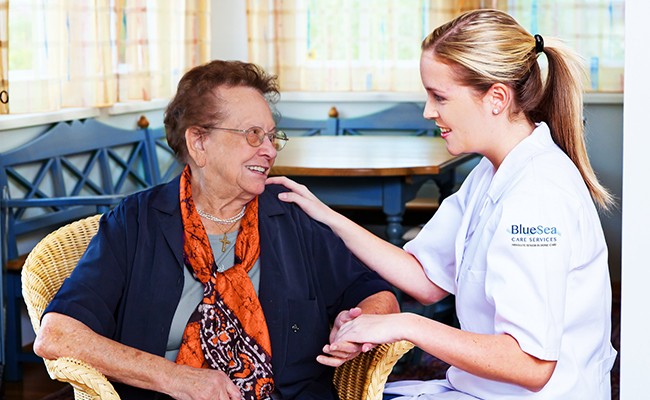Alzheimer’s and dementia affect far too many people around our nation, and these conditions create incredible challenges for patients’ loved ones. For many families, they face the dilemma of what to do for long-term care, including questions about how to best maintain quality of life for their loved ones, especially if they are past the ability to work on Dementia prevention. BlueSea Care specializes in comprehensive in-home care needs, and we believe that, as your family embarks on this difficult journey, you must remember one simple starting point: routine.
The Importance of Routine for Alzheimer’s and Dementia Patents
The one constant about Alzheimer’s and dementia patients is that their conditions are always changing, sometimes even hour by hour. They have good days, bad days, and functionality that fluctuates each and every week. While you can’t control the presentation or progression of their symptoms, unless it is with Dementia prevention advice, you can utilize the latest research to help support their mental and emotional health, and preserve function and independence for as long as possible.
As soon as your loved one receives a diagnosis, you should work carefully to identify and establish the regular routines that help him or her maintain a sense of control and normalcy as a form of Dementia prevention. Constant change exacerbates feelings of disorientation, and sometimes leads to agitation and a worsening of symptoms. Routine grounds patients, and boosts feelings of safety and security. However, you should know that the concept of routine goes far beyond daily life. You may be surprised to find how your parent reacts to even the smallest change. Something as simple as purchasing a different brand of toothpaste, or putting something away in the wrong cabinet could be enough to trigger a meltdown. While your parent’s doctor provides the best information for establishing a caregiving routines, here are some tips to get started:
• While routines need not be set in stone, you want your loved one to have the comfort of expectations. Similar wake-up times, meal times, and activity times help establish continuity. Identify trends now to help frame more structured routines later.
• Start a journal today and take note of the specific preferences your parent demonstrates. If he or she is particularly adamant about certain products or ways of doing things, document this now to help you remember these important points as the situation changes.
• Train your any outside caregivers about established routines. Good caregivers want the best for their patients, and they need all the information to help support your family to the best of their abilities. When you provide the most complete picture of your loved one’s routine, your caregiver gains a better ability to support it.
Remember that, as you embark on this journey, you have many resources available to help you navigate this process. When you focus on keeping things as normal as possible for your loved one, you help preserve quality of life and make the most of every day.



